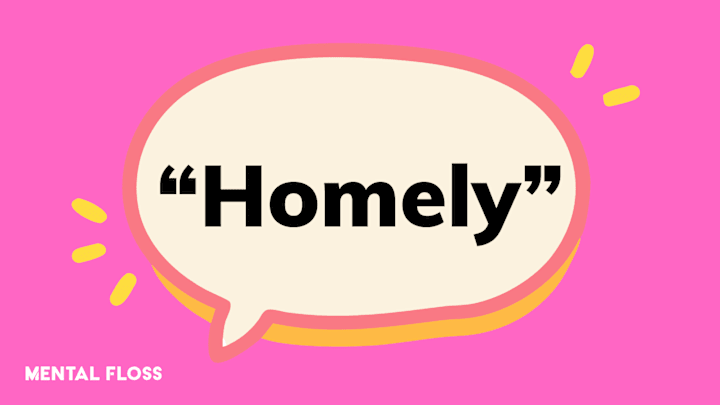Language ages like milk. Words shift, meanings drift, and as the years go by, the dictionary has suddenly become subjective at best.
If you’ve ever wondered why your grandma calls someone “homely” with a smile while the rest of the room winces, you’re not alone. Let’s take a little stroll through seven old-school compliments that have seriously lost their sparkle.
Homely

Back in the day, calling someone “homely” meant they were warm, welcoming, and made you feel comfortable. Basically, you reminded them of home. Today? It’s… not that.
In American English, “homely” now basically means “not put together,” which explains why so many people online have traumatic memories of being called homely by well-meaning relatives.
Awful

This one makes sense when you think about it: “Awful” used to mean “full of awe.”
While its meaning has certainly changed, it still holds some truth. In a way, you’re still “awe-struck” by something that smells absolutely terrible.
Nimrod

Long ago, Nimrod was actually a legendary hunter in the Bible. Then, Bugs Bunny used the term sarcastically and completely flipped the meaning of the name on its head. And then, that was that. One cartoon rerun and centuries of meaning were wiped out!
Egregious

This one used to be positive, because it meant standing out from the crowd in a good way. Today, “egregious” means exceptionally bad, the kind of word you use when something is so horrible that it’s nearly offensive.
Bland

Believe it or not, “bland” was once a compliment. It meant gentle, soothing, and not overwhelming. Now, if someone calls your cooking bland? Well, you know what they mean. (Pass the salt!)
Silly

“Silly” began its life meaning blessed or fortunate; genuinely a compliment. Then it drifted to mean innocent… then unsophisticated… and eventually landed on “acting goofy.” Honestly, it’s kind of wholesome that “silly” now signals fun, but it definitely took the scenic route getting there.
Bonus: Terrific

Okay, this last one is actually a fun twist: “terrific” used to mean terrifying. Like, “that storm was terrific,” not “this pizza is terrific.” So this one is the opposite, in that the word used to have a negative connotation and is now widely positive.
Somewhere along the way, the word went through a full personality makeover and is now permanently cheerful. A reverse insult glow-up to round us out!
How Do These Changes Even Happen?
Linguists call this little glow-down process pejoration, when words shift over time and acquire negative meanings. Blame sarcasm, pop culture, or the general human tendency to ruin nice things.
But the bright side? If meanings can slide downward, they can slide upward too. “Terrific” made it, and “groovy” had its comeback, too. Language is one big renovation project.
So the next time someone from an older generation calls you “homely,” “silly,” or (heaven forbid) “nimrod,” take a beat. They might be complimenting you!
